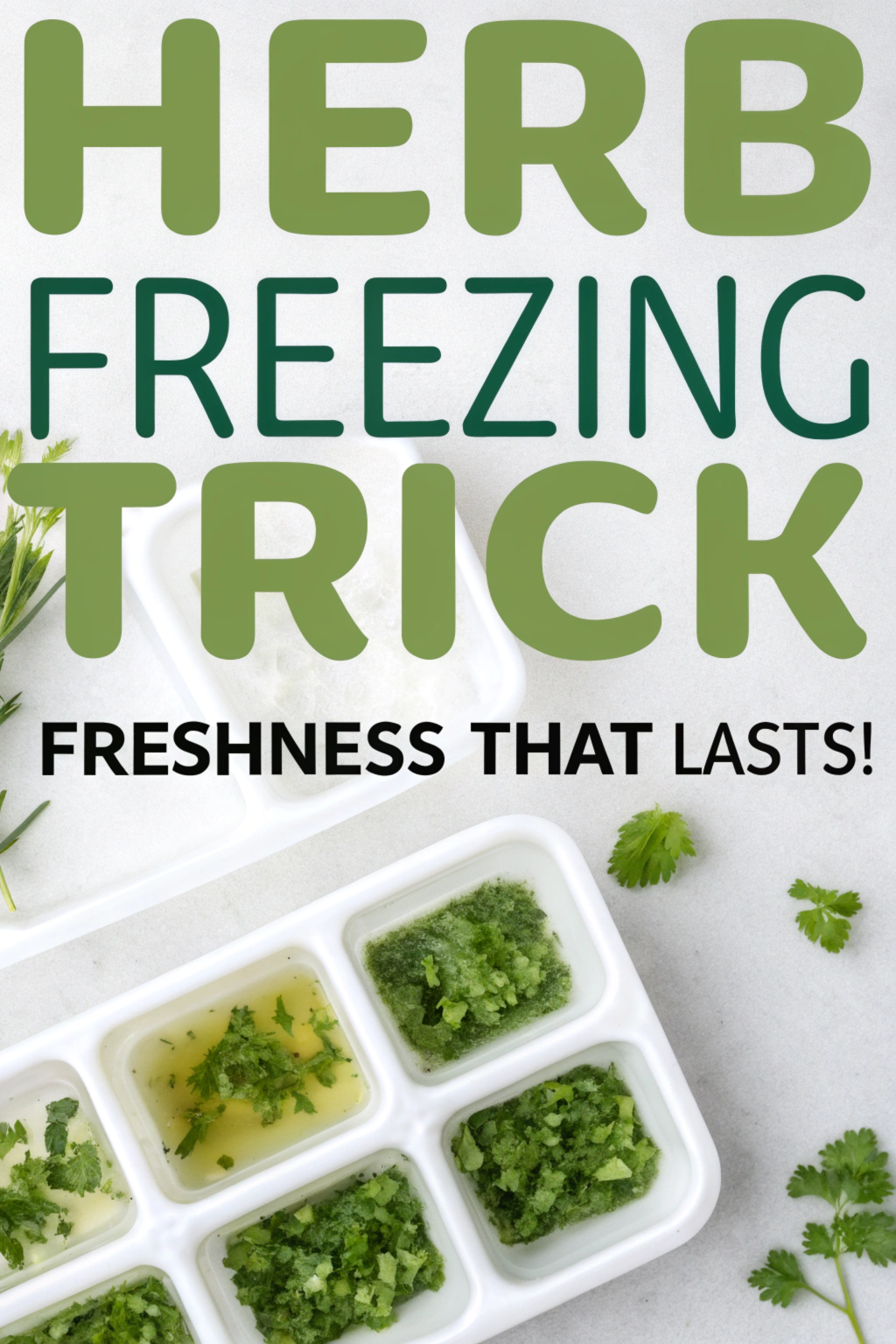Tired of watching your fresh herbs wilt away in the fridge? Discover the game-changing herb freezing trick that ensures “freshness that lasts!” This simple yet effective method will help you preserve the vibrant flavors of your favorite herbs for months to come, reducing food waste and saving money in the process.
Why Freeze Fresh Herbs?
Fresh herbs can transform any dish from ordinary to extraordinary, but they often go bad before we can use them all. Here’s why freezing herbs is a smart solution:
- Preserves the intense flavor and nutrients of fresh herbs
- Reduces food waste and saves money
- Provides year-round access to your favorite seasonal herbs
- Takes minimal time and effort
- Requires no special equipment beyond an ice cube tray
The Secret to Successfully Freezing Herbs
The key to maintaining herb freshness lies in proper preparation and storage. This method works beautifully for soft herbs like:
- Parsley
- Cilantro
- Basil
- Mint
- Dill
- Chives
Essential Materials
Before you begin, gather these items:
- Fresh herbs of your choice
- Ice cube trays (preferably with lids)
- Olive oil or water
- Cutting board and sharp knife
- Labels and marker
- Freezer-safe container or bags for long-term storage
Step-by-Step Guide to Freezing Herbs
1. Prepare Your Herbs
- Wash herbs thoroughly and pat completely dry
- Remove tough stems
- Finely chop the leaves
- Pro tip: Use a sharp knife to prevent bruising and maintain flavor
2. Fill the Ice Cube Trays
- Place 1-2 tablespoons of chopped herbs in each compartment
- Fill each cube about 2/3 full with herbs
- Add olive oil or water to cover the herbs
- For cooking purposes, olive oil works best as it prevents freezer burn and integrates easily into recipes
3. Freeze and Store
- Place trays in the freezer until completely frozen (usually 4-6 hours)
- Pop out the cubes and transfer to labeled freezer bags
- Remove as much air as possible from bags
- Label with herb type and date
- Store for up to 6 months
Best Practices for Using Frozen Herb Cubes
How to Use
- Drop frozen cubes directly into:
- Soups and stews
- Sauces and marinades
- Sautéed vegetables
- Pasta dishes
- One cube typically equals about 2 tablespoons of fresh herbs
Tips for Best Results
- Don’t thaw before using – add directly to hot dishes
- Use oil-based cubes for cooked dishes and water-based cubes for smoothies or drinks
- Add at the end of cooking for maximum flavor
- Keep different herbs separate for more flexible use
Common Mistakes to Avoid
- Using wet herbs (leads to ice crystals and flavor loss)
- Freezing whole leaves (reduces flavor extraction)
- Mixing too many herb varieties (limits usage flexibility)
- Forgetting to label (leads to mystery cubes)
- Storing for too long (optimal use within 6 months)
Creative Ways to Use Your Frozen Herbs
- Quick Pasta Sauce: Drop 2-3 basil cubes into hot pasta with cherry tomatoes
- Instant Marinade: Melt 2 cubes with garlic for a quick chicken marinade
- Soup Starter: Add frozen herb cubes to sautéed vegetables for soup base
- Compound Butter: Mix melted herb cubes into softened butter
- Flavor Boost: Toss into stir-fries or rice dishes for instant fresh herb flavor
Tips for Different Herb Types
Soft Herbs (Freeze in Oil)
- Basil
- Parsley
- Cilantro
- Chives
- Mint
- Dill
Woody Herbs (Freeze Whole)
- Rosemary
- Thyme
- Sage
- Oregano
Conclusion
This herb freezing trick is a game-changer for home cooks who love using fresh herbs but hate waste. By following these simple steps, you can preserve the bright flavors of your favorite herbs and have them ready to use whenever you need them. Start with a small batch to perfect your technique, then scale up to preserve your entire herb garden harvest!
Ready to Start?
Begin with herbs you use most frequently, and experiment with both oil and water-based freezing methods. Your future self will thank you when you’re adding fresh herb flavor to winter soups and stews!
Don’t forget to share this trick with fellow cooking enthusiasts and let us know in the comments how this method works for you!

